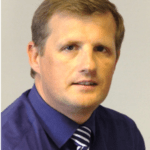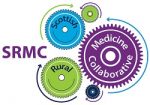The work of the Scottish Rural Medicine Collaborative (SRMC) has effectively been given the ‘thumbs-up’ by the Remote and Rural General Practice Working Group, set up in the wake of the launch of the new GP contact in April last year.
The group, whose membership is drawn from a diverse field of expertise across rural primary care, has been working to support the transformation of general practice and primary care services in Scotland.
Now it has issued a set of 12 recommendations, one of which reads: “The Scottish Government in concert with all stakeholders should work together with the Scottish Rural Medicine Collaborative to develop innovative solutions to support retention and recruitment of remote and rural GPs and broadening multi-disciplinary team workforce at all career stages.”
In its report setting out its recommendations, the working group says that it “welcomes the work of the SRMC in bringing together rural health boards and other key stakeholders including BMA, RCGP and NES to co-produce creative solutions to rural recruitment and retention challenges”.
One example of this innovative approach highlighted in the report is the ‘Rediscover the Joy of General Practice’ initiative which last year recruited 33 GPs to its first rural GP support team.
The report also states that the working group recognises the SRMC’s achievements and recommends that the Scottish Government supports the collaborative to expand its work into efforts to improve the recruitment and retention of multi-disciplinary teams.
At their most recent meeting, in November, members of the SRMC board noted a report on the progress made to date by the working group.
The report pointed highlighted one particular common theme in feedback from colleagues in rural general practice: “… sustainability and recruitment of GPs and other multi-disciplinary team members (an ongoing workforce challenge to general practice throughout Scotland and across the whole of the UK) was exacerbated by the specific circumstances of delivering general practiced in remote and rural areas”.
It added: “We found heartening examples of innovative work taking place, helping to overcome barriers to make best use of new technology, collaborative working, and new models of care. GPs and colleagues championing these developments need to be fostered and further supported.
“Where an innovative approach has been successful, there should be more opportunities to share, promote, transfer and scale up what works into other areas.”
Among the other recommendations of the working group’s full report are that a National Centre for Remote and Rural Health and Social Care be established “to foster and promote innovation and excellence in Scotland and internationally”.
Health Secretary Jeane Freeman said the working group’s recommendations aimed “to enhance primary care across remote, rural and island communities by ensuring stability for rural GP incomes alongside other measures that support innovative approaches to the use of IT and physical infrastructure, as well as recruitment and retention practices.”
Sir Lewis commented: “I hope that this report, kindly informed by both health professionals and public representatives, will help to underpin excellence and sustainability of future services in remote and rural areas throughout Scotland.
“Going forward, we must do this well, do this with resolve, and do this together.”

Ralph Roberts, SRO
SRMC chair and senior responsible officer Ralph Roberts commented: “We are of course delighted that the collaborative’s work features in the recommendations made by this important and influential working group.
“I see it as further vindication of the importance of our role in helping to improve GP services in our remote, rural and island communities.”
He added: “I look forward to seeing continued collaboration between the SRMC and other stakeholders as we strive to meet the aspirations expressed in the working group’s report.”
